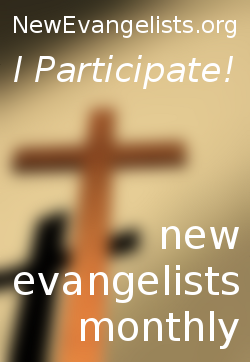
I have many fond memories growing up in my church, part of a mainstream Protestant denomination. Our congregation was small but tight-knit. Our church building was of an older, majestic style located in a small city that once saw greater numbers on Sunday. My parents were married there. My brother and I were baptized there.
While no one would have called us “bible thumpers,” we were quietly religious. We went to church on Sunday, served as acolytes and ushers, went to Sunday School, attended Vacation Bible School, went to catechism classes, were confirmed, said grace before dinner, said prayers at bedtime and tried to live our faith.
After I married and moved away, we connected with a mission church of my denomination. It would be closer to our new home than our other already established churches in the area. We had a young, enthusiastic Pastor building a new church literally from the ground up. It was exciting to watch us grow, meet new people, make new friends and continually expand.
Things were changing nationally for my denomination. We were consolidating into a larger organization and locally we grew with people from varied church backgrounds. This made us “successful” but less focused. People joined with little or no instruction in what “we” historically believed. Our faith at the pew level became increasingly diluted.
Like many Protestant denominations, our formal faith was for the most part Bible based. Also like many Protestant denominations, the Bible was interpreted by our church leaders who met annually to democratically vote on matters of organization and faith. This is where we got into trouble – faith being pliable and voting democratically on “what we believe.” It is a very important topic and one I will explore in a later post.
There were changes over the years. A big one was the addition of women pastors. Another was the move to an “open communion” where all baptized people are welcome to receive regardless of their understanding of the Eucharist. There were many smaller ones too. We became more flexible and politically correct. These changes were unsettling but I didn’t focus on them and had faith in my church. It was, after all, an important part of me.
Eventually our founding Pastor moved on, leaving a large, thriving church – quite an accomplishment from the days he went door-to-door inviting people to join our forming mission. The loss of a much loved, founding pastor is hard on any church, and it was for us too. While we struggled, I held in there. Eventually I knew we would get over this rough spot and besides, this was my church. Being a member of this denomination would forever remain an important part of who I am. I am not a quitter when things get difficult.
We felt at home and have friends at church. If, heaven forbid, things did not improve I could reluctantly move to another church of my denomination. There were more in our area now. That would only be a last resort. Regardless, I would be in my denomination until my last breath.
Looking back now and at what I wrote above, the one thing missing in all of this hand-wringing, personal identity crisis, belonging and travel distance considerations is an emphasis on underlying faith. I was not asking myself if my church was teaching the faith Jesus taught the Apostles or questioning if they were putting words in His mouth. As a Protestant I certainly was not asking if I was a direct member of the Church HE founded. Nope. I just needed to tough it out, to maintain the status quo, not spend the time to ask tough questions or really discern the truth.
Then God whacked me on the head. An unmistakable wakeup call I could no longer ignore. My denomination took even more liberal, politically correct steps – leaps really. I realized I simply could not accept what my church now teaches.
At first I could not believe the news. I searched online to see if it was really true and found it was. I became angry, then disappointed, and finally sad. Sad because I knew at that moment my denomination had abandoned our faith. The faith I grew up with. My faith. Sure, to ease us into the new thinking individual local churches were not “forced” to immediately implement anything different, but the direction was clear.
As we moved further and faster in this “liberal” direction, more like-minded people would be attracted and more “conservative” folks like myself would fall away. It is a self-reinforcing, closed loop. There was no reasonable hope this would be undone. Quite the contrary, our changing faith was destined to “keep up with the times.” There are those who think that is a good thing.
For the first time in my life my heart told me I was no longer a member of that denomination. I was truly without a church home and cast adrift. It is very lonely out there when your church family takes a new path that leaves you behind.
This is my Conversion Story, part 1 of 4. Please also see:
- Part 2: How in the world did I end up here?
- Part 3: Sign me up!
- Part 4: The journey
Some notes: First, I decided not to be more specific in this post than “my denomination.” Most mainstream Protestant denominations are going down this unfortunate path. Second, in the context of religion, “liberal” and “conservative” have nothing to do with political parties. For me liberal means flexible, changing faith and conservative means holding true to the unchanging word of God.



























Share Your Thoughts